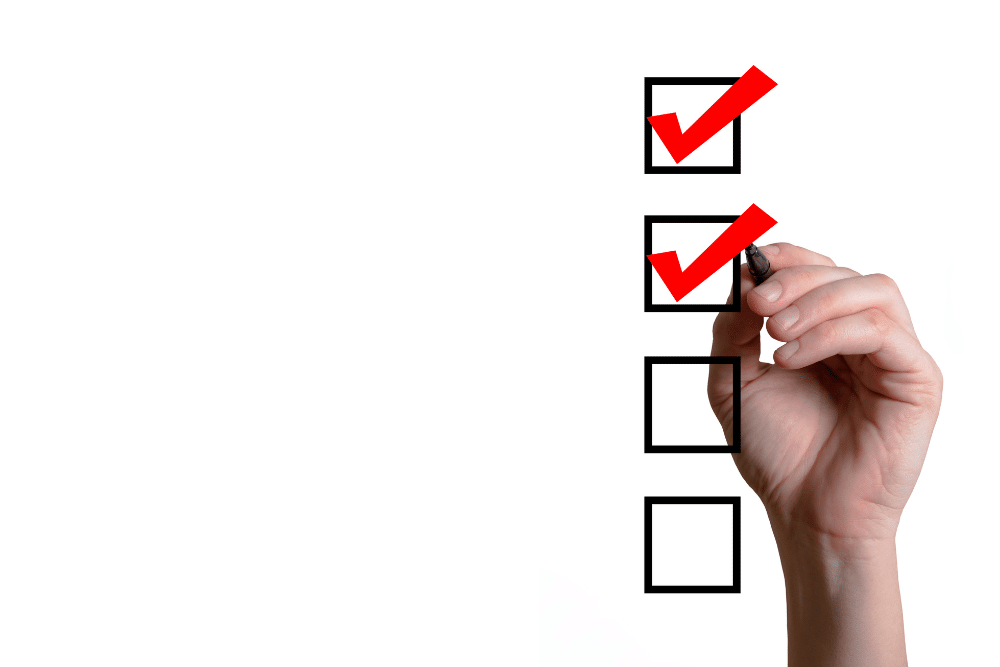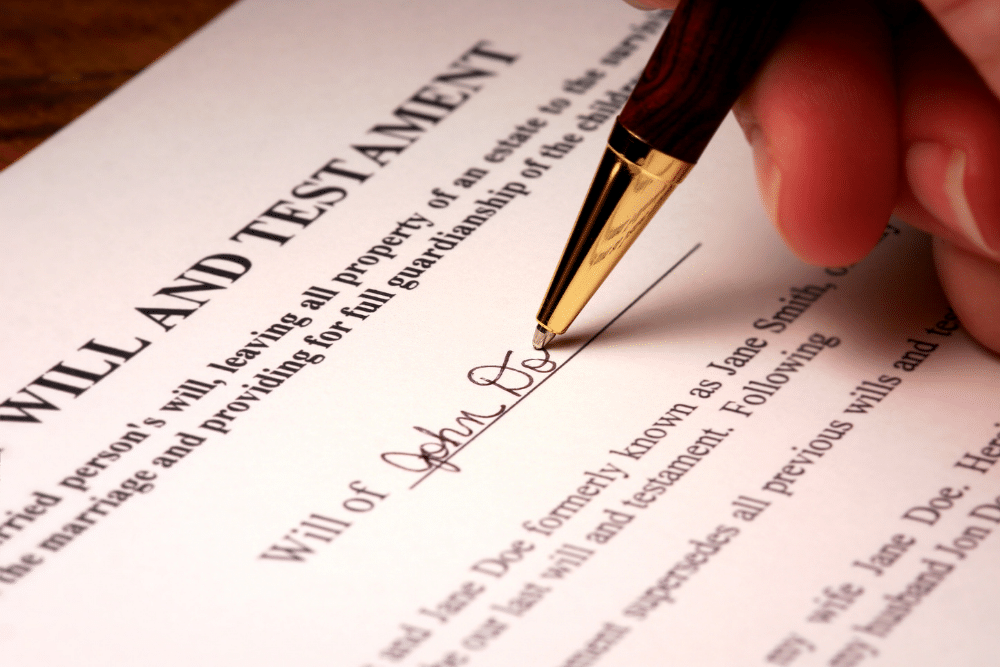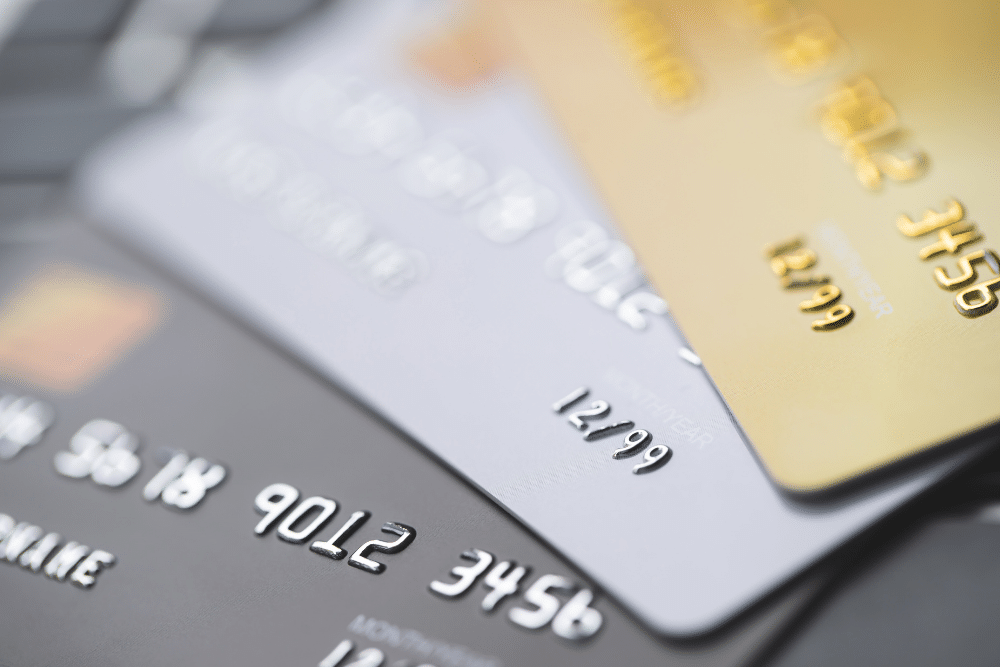
By: Barry E. Haimo, Esq.
May 31, 2021
What to do After a Loved One’s Death in Florida: A Checklist
Following the passing of a loved one, you will understandably be overwhelmed with many emotions. Unfortunately, you may be thrust into a variety of financial, legal, and administrative roles at the same time.
To make the process easier to handle, you need a checklist when someone dies in Florida. Something that covers the things that you need to do and the order in which to do them. People call us all the time asking for this type of document. Because of this, we decided to put together our own checklist for when someone dies in Florida.
Please note that this checklist is not exhaustive. Additionally, the order in which these items should be completed may change depending on the circumstances. Some of the items below may even have to occur simultaneously.
I. Immediately Following Death
This part of the checklist when someone dies in Florida covers things that you need to do as soon as possible.
1. Go to the deceased’s home. Look for all pertinent legal documents, financial documents, and the like (the relevance will be discussed more below). Your biggest priority at this point is to address organ donation and final disposition. Be sure to secure the home.
2. Identify if the deceased wanted to be an organ donor. This is usually found on his or her driver’s license and in their Advanced Care Directives. Documents to look for include:
- Living Will
- Health Care Surrogate
- Health Care Proxy
- Health Care Power of Attorney
The last three are just different names for what is usually the same type of document.
3. Focus on final disposition. What does that mean? What they wanted done with their body — burial, cremation or entombment.
Find out if they already made arrangements or if you’ll have to scramble to do that quickly. Unfortunately, most people do not have pre-arrangements, which puts additional and unnecessary pressure on the family during this time.
In this regard, financing the final disposition can be done in a few ways:
- Using a trust
- Beneficiary’s advancing money
- Borrowing from a loved one or friend
Importantly, if there is any money in the estate, the entity that pays for final disposition is repaid first — even before other creditors. Request about 5-10 copies of the death certificate from the funeral parlor or other relevant institution.
Also, be mindful of religious considerations, which typically complicates this process.
4. Notify family and friends of events. You will need to make sure they know about funeral arrangements and other events that bring family and friends together to celebrate the life of the departed.
5. Prepare an obituary.
II. Meet with an Estate Attorney
The next item on the checklist when someone dies in Florida involves legal matters.
Even though an the estate attorney will not be able to provide you with a completely accurate picture of how things will play out until the discovery process is substantially completed (see below), they can provide you with a “road map” of sorts. Many people find that this offers them peace of mind.
On one hand, if probate is avoided through careful estate and business planning, then much of the remaining work is administrative in nature. On the other hand, if probate cannot be avoided, then it’s important to understand the “ABCs” of probate. That stands for assets, beneficiaries, and creditors. Click here to learn more about probate.
In this regard, it’s critical to know what the deceased owned, and particularly how it was titled. Then you can identify the designated beneficiary or beneficiaries who will inherit the assets after resolving all of the deceased’s creditors’ substantiated claims.
Some issues you will cover during your meeting with the attorney include:
- Whether a probate proceeding is required.
- Explain the road map for how the trust(s) will be administered.
- Whether any beneficiary would want to disclaim their inheritance.
- How to account for expenses incurred after death.
- Will an appraisal of any of the assets be necessary?
- Is an estate tax or inheritance tax due?
- How and when to distribute personal property to beneficiaries.
- How and when to distribute other assets to the beneficiaries.
- If the deceased owned a business, how will the governing documents affect its operation and/or sale thereafter?
III. Meet with the Deceased’s Financial Advisor
It’s important to promptly meet with the deceased’s financial advisor for at least three reasons.
To:
1. Identify the deceased’s investment holdings and how they are owned. (i.e., are they owned in his or her name, a trust, jointly held, in a company, etc.)
2. File any life insurance claims on all policies of life insurance with the deceased as the insured.
3. Discuss the beneficiary’s options with respect to accounts that do not require going through court proceedings and are not otherwise managed by a trust or other instrument.
IV. Document Gathering and Discovery Process

This fourth item on the checklist when someone dies in Florida occurs after the funeral, cremation or other disposition. At this point in the process, the personal representative (PR) is the person typically responsible for these items.
1. Continue to track deposits and expenses incurred due to the death and thereafter. This will be needed later.
2. Locate all original estate planning documents. The originals are required, and only sometimes do estate planning attorneys retain the originals of these documents. This should include any of the following that were created:
- Last will and testament
- Living / revocable trust
- Irrevocable trusts
- Prenuptial and postnuptial agreements
- Powers of attorney
- Health care surrogates
- Living wills
(Note that the latter three are on longer valid, but will be helpful to review fiduciary appointments).
Please note that, pursuant to Florida law, the last will and testament must be produced and filed with the court within 10 days following death. If you cannot find it, it may be in a safe deposit box, so be sure to look there too.
3. Identify and locate all of the deceased’s assets and liabilities. This is most easiest obtained by going through the mail and examining bank and brokerage statements. The PR will ultimately have consulted with the deceased’s accountant, certified public accountant (CPA), estate attorney, banker, and financial advisor.
Assets and liabilities may include the following:
- Real Estate – look for deeds conveying title
- Bank Statements
- Retirement Account Statements – IRAs, 401(k)s, Pension Plans, etc.
- Investment Statements
- Life Insurance Contracts
- Annuity Contracts
- Car Titles
- Business Interests – corporations, limited liability companies (LLCs), limited partnerships (LPs), real estate investment trusts (REITs)
- Bonds
- Mortgages
- Credit Card Statements (don’t worry if you cannot readily confirm the existence of credit cards, as they will positively emerge demanding payment)
- Car Loans
- Balance sheet
- Income statement
4. Understand the deceased’s business holdings. If the deceased had business interests, it is important to contact the partners and obtain all material documents for the entities. This includes governing documents, such as operating agreements, bylaws, and shareholder’s agreements, as well as buy-sell agreements, assignments, meeting minutes, stock certificates, and so on.
V. Call the Deceased’s Bank and Banker
1. Locate the safe deposit box if one exists. As mentioned earlier, it may contain important legal documents as well as valuable assets. Typically, if owned in the deceased’s name alone, a bank will only let you in it with a court order. Because of this, you may have to proceed intestate (as if the deceased died without a will) to get started.
2. Notify the bank of the death. While you’re at the bank, let them know of the passing so they can remove his or her name from all jointly held accounts. For non-jointly held accounts owned in the deceased’s name alone, this will result in the bank freezing assets until the PR produces the appropriate court orders directing the bank to take certain action.
VI. Notify Other Miscellaneous Entities of Death as Well
Item six on the checklist when someone dies in Florida is to start contacting other organizations and entities impacted by their passing. This can include a wide variety of entities depending on their personal affiliations, but in almost all circumstances will involve:
1. Federal agencies. This most commonly includes agencies like the Social Security Administration or Veteran’s Affairs. They should be notified for a couple of reasons:
First, benefits may terminate on death. Any funds received thereafter will have to be returned. It’s an unnecessary headache.
Second, benefits may be inherited by the surviving spouse or other beneficiaries by operation of a beneficiary designation. If this is the case, you want to ensure that is processed timely. If not done timely, the state of Florida will receive the funds until claimed.
2. Deceased’s employer. If the deceased is still employed at the time of death, you’ll want to inquire about employment benefits. This is especially true if the deceased was an owner of the business and there is a buy-sell provision.
3. Health insurance provider. You’ll want to stop coverage. Oftentimes, you may be entitled to a refund.
4. United States Postal Service (USPS). You will need to have mail forwarded to the family member managing the deceased’s affairs. Typically, this person is also the appointed personal representative. For this reason, he or she may need proof of such appointment from the court to manage the deceased’s mail.
5. Florida Department of Motor Vehicles. They will need to be contacted to cancel the deceased’s driver’s license. Similar to the above credit bureaus, this may help to prevent post-death identity theft.
6. Subscriptions and services such as cable and internet providers.
7. Membership organizations. You will want to cancel any memberships the deceased was paying for to prevent those organizations from becoming a creditor later.
VII. Cancel credit Cards and Notify Credit Card Companies and Credit Bureaus of the Death

1. Notify credit cards. You should send a death certificate to each credit card company that you find. Importantly, the personal representative has a fiduciary duty to perform a diligent search for all creditors. All reasonably ascertainable creditors are entitled to actual notice of a probate (also called estate administration), so it’s important this occurs.
2. Notify credit bureaus. This may also help to minimize the risk of post-death identity theft, which occurs more frequently than you’d realize. The three major credit bureaus are Equifax, Experian and TransUnion.
VIII. Meet with a Certified Public Accountant (CPA)
It’s important to meet with a CPA in order to determine if it’s necessary to file a final income tax return for the deceased. If the estate is open long enough, it may even become necessary to file income tax returns for the estate!
Similarly, if there are trusts involved, it will likely become necessary for the trust to file income tax returns as well.
Lastly, if estate tax return form 706 is necessary, the CPA or the estate attorney will likely prepare it.
IX. Special Accommodations
It’s important to terminate or “freeze” social media accounts and other online accounts.
Some websites permit a “memorialization” feature once they receive formal notice of the death of a user. Similarly, you may want to consider terminating the deceased’s email, but be careful not to delete any accounts for which you still need access for information or to authenticate other accounts.
Originally published 10/8/17. Updated 5/31/21.
Author:
Barry E. Haimo, Esq.
Haimo Law
Strategic Planning With Purpose®
Email: barry@haimolaw.com
YouTube: http://www.youtube.com/user/haimolawtv
YOU ARE NOT OUR CLIENT UNLESS WE EXECUTE A WRITTEN AGREEMENT TO THAT EFFECT. MOREOVER, THE INFORMATION CONTAINED HEREIN IS INTENDED FOR INFORMATIONAL PURPOSES ONLY. EACH SITUATION IS HIGHLY FACT SPECIFIC AND EXCEPTIONS OFTEN EXIST TO GENERAL RULES. DO NOT RELY ON THIS INFORMATION, AS A CONSULTATION TO UNDERSTAND THE FACTS AND THE CLIENT’S NEEDS AND GOALS IS NECESSARY. ULTIMATELY WE MUST BE RETAINED TO PROVIDE LEGAL ADVICE AND REPRESENTATION. THIS INFORMATION IS PROVIDED AS A COURTESY AND, ACCORDINGLY, DOES NOT CONSTITUTE LEGAL ADVICE.